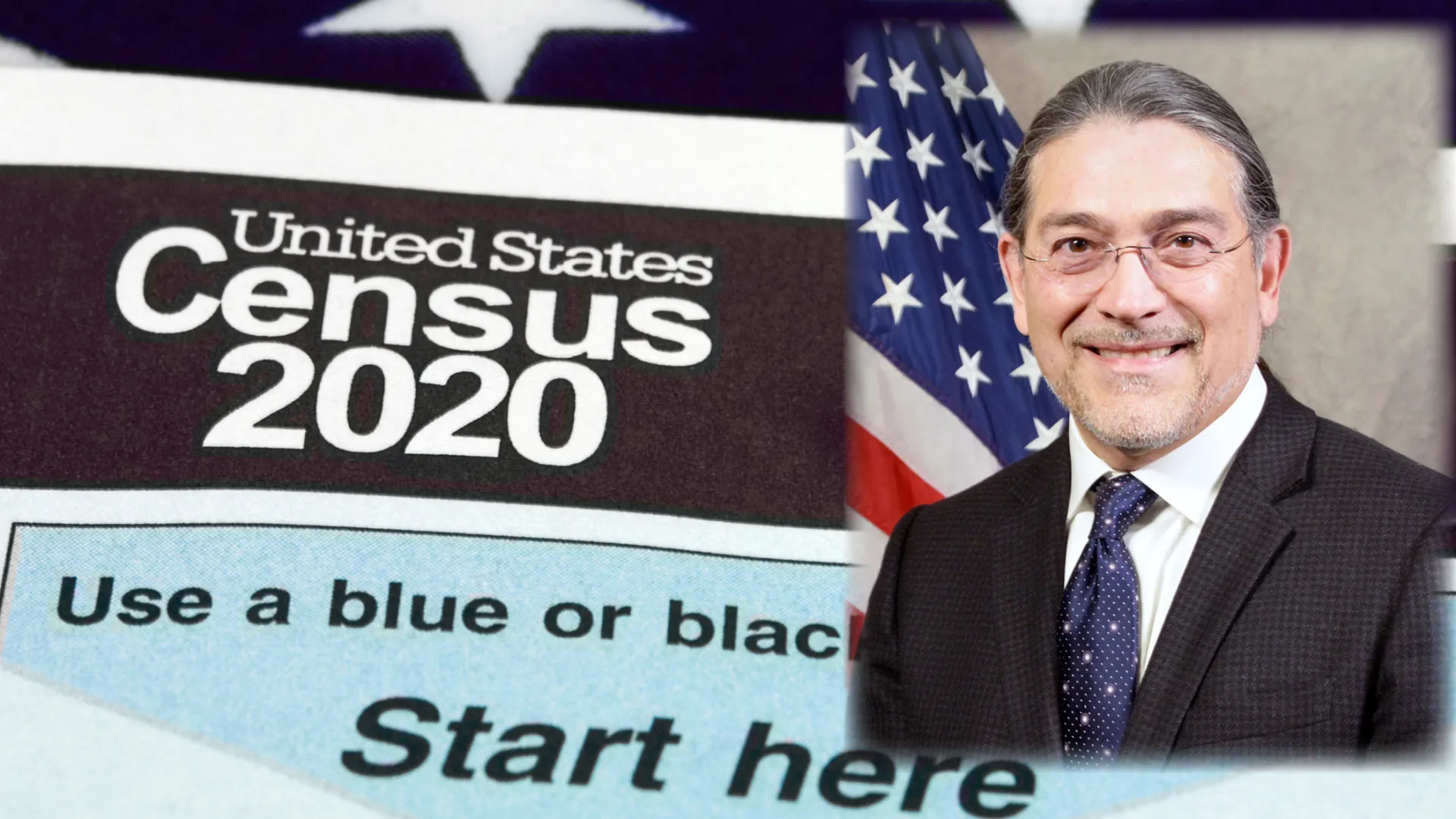Joe Gutierrez | Office of Strategic Communication | (909) 537-3007 | joeg@csusb.edu


A longtime supporter of the U.S. Census Bureau, Robert Santos has made it his mission to make sure everyone is counted.
As the first Latino to serve as director of the U.S. Census Bureau, one can say the Texas-raised statistician has the life experience and cultural understanding suited to take a leadership role that will task him to ensure the once-a-decade headcount is complete and accurate – including people of color.
Santos will share his personal experiences during his virtual talk “From Chicano to Latinx: My Search for Identity Finds Diversity,” scheduled at noon on Sept. 27.
The College of Natural Sciences event is being held in conjunction with Hispanic Heritage Month, and participants can get more details from the event’s Coyote Connection calendar post or the Hispanic Heritage Month calendar.
Attendees must register beforehand using the event’s Zoom registration link.
“We are truly honored to have such a distinguished and inspiring guest share his perspectives with our CSUSB community,” said Sastry G. Pantula, dean of the College of Natural Sciences. “Director Santos is a wonderful role model for our students, who are predominantly Hispanic, first-generation, and they transfer to us from community colleges.”
“He is a nationally renowned statistician who has consistently worked to use statistical analysis for the public good,” he added.
During his Senate confirmation hearing in 2021, Santos said, “I understand the importance of data quality and the Census Bureau’s role in providing data that nurtures our democracy, informs our people and promotes our great economy.”
The statistician, whose education started at a community college, has come a long way from the barrios of San Antonio.
In a November 2021 interview with NPR, Santos referred to his “dual passions of statistics and helping people.”
Born and raised in the barrios of San Antonio (his grandparents were Mexican born), his parents were civil service workers. Santos was a straight A student in high school, at one point earning a math medal.
As the first in his family to go to college, Santos first enrolled at San Antonio College before a calculus instructor recognized his aptitude for mathematics and encouraged him to apply to Trinity University, also in San Antonio. There, he eventually earned a bachelor’s degree in mathematics and, later, a master’s degree in statistics from the University of Michigan at Ann Arbor. While at Michigan, he worked on the National Chicano Survey, the most comprehensive national survey of Americans of Mexican descent at the time, and embraced his Chicano identity.
Santos’s experience in the fields of survey and opinion research, statistical design and analysis, and executive management went on to span more than 40 years. He served as vice president and chief methodologist at the Washington D.C.-based Urban Institute for 15 years, where he directed its Statistical Methods Group. He was also the executive vice president and partner of NuStats, a social science research firm in Austin.
He has also served in leadership positions at the National Opinion Research Center at the University of Chicago, the Institute for Social Research at the University of Michigan, and Temple University’s Institute for Survey Research.
Santos previously served as president of the American Statistical Association (ASA), president of the American Association for Public Opinion Research (AAPOR), and a longtime member of Public Opinion Quarterly’s editorial board. His awards and honors include being named an ASA Fellow and a recipient of the ASA Founder’s Award in 2006, and Santos received the 2021 AAPOR Award for Exceptionally Distinguished Achievement.
His specialties include quantitative and qualitative research design, according to his U.S. Census bio. Santos is also an expert in demographic and administrative data, decennial census, social policy research, and equity issues in research.
He was sworn in as director of the U.S. Census Bureau for a five-year term this past January, helping to lay the groundwork for the 2030 census.
Information collected by the census helps drive policymaking and shapes the future of the country by determining the number of seats in the U.S. House of Representatives, redistricting, money to states and local communities, planning, emergency response, and by serving as a base for federal surveys.
Santos’s passion for generating, analyzing and presenting data to help society has prompted him to criticize efforts that eroded trust in the census and work to rectify situations where surveys counts failed to account for different cultures, identities or social classes
In 2019, he co-wrote a report warning that the 2020 Census could produce high undercounts of Black and Latino people. In 2020, he criticized the White House’s scheduling changes that cut short the time for counting, saying it had “no scientific rationale.” And he advised a 2021 study that suggested the 2020 census likely undercounted people of color at rates higher than those of the previous tally.
And as he was poised to assume a leadership role that makes him the country’s Census director during his confirmation hearings, Santos assured the public that he is “no politician,”
“I’m a scientist, an executive-level manager, a researcher and a longtime supporter of the Census Bureau,” he said. In a profile for an August 28 NBC News, Santos revealed that he served as a photographer for the South by Southwest festival, and used to use corn-flour dough (masa) that his mother made as bait instead of worms when fishing near his family’s home.
Those interested in more information about the “From Chicano to Latinx: My Search for Identity Finds Diversity” can email or call the college at cns@csusb.edu or (909) 537-5300.